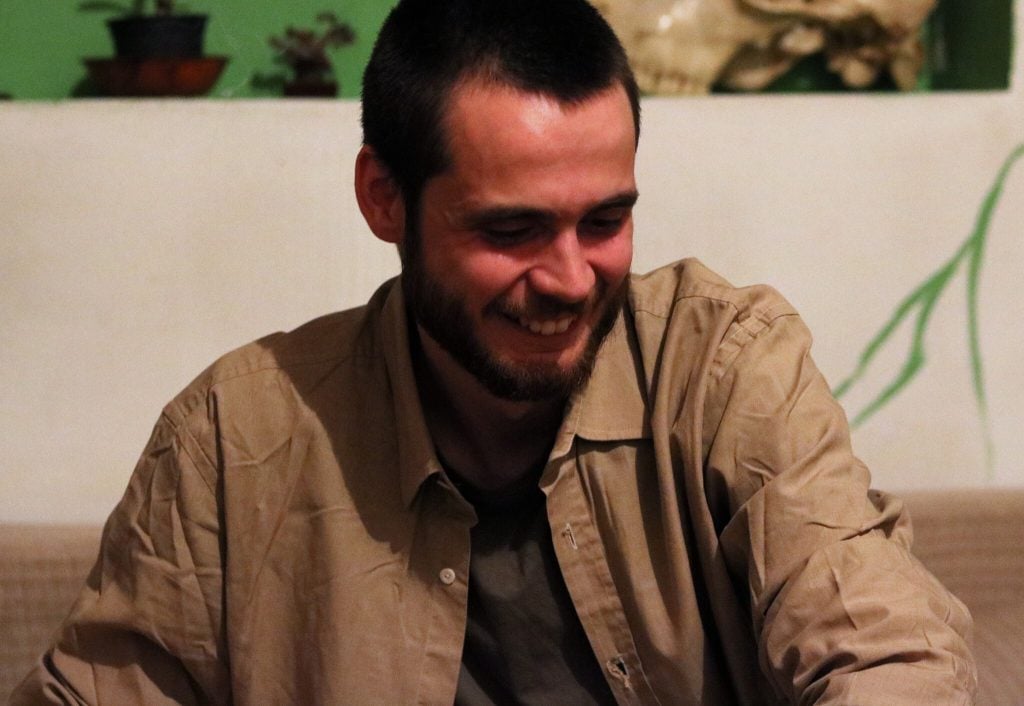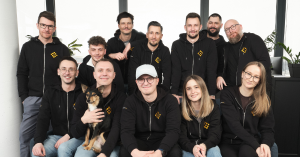While companies in the region are already developing successful fintech ecosystems, the development of the industry in North Macedonia is at its beginnings, with only a handful of fintech startups making progress during the last few years.
Project Robin Hood Reloaded is one of them – with the startup having been founded by Macedonian tech enthusiast Dime Galapchev, in cooperation with the Swiss Fintech company MW Finance. The startup has developed investment solutions that users can make on the stock markets, enabled by artificial intelligence. In this way, the startup has already started to diversify the fintech industry in the country.
“Project Robin Hood Reloaded is an international startup providing both investment solutions for clients, and regular funding for nonprofits by automatically transferring the majority of its share from the profits to charities that the clients chose or recommend. The investment solution works by allowing clients to easily diversify their portfolio only across the best trading strategies available on the market, allowing for secure growth of the portfolio”, Galapchev tells The Recursive.
While Galapchev didn’t comment if the name is inspired by US investment-trading company Robinhood, involved in this year’s GameStop stock controversy, he says the inspiration for the name came from the legendary English outlaw Robin Hood, who took from the rich and gave to the poor, alluding to the donation part of the investment solution.
Using the potential of the fintech industry
Galapchev came up with the idea for the startup two years ago, when he was just getting into the fintech sector. Before that, for most of his career, Galapchev was working in digital marketing. While realizing the potential of the industry, during the first half of 2020, he also experienced the setback that most investors were facing because of the COVID-19 pandemic.

“During 2020 I was experimenting with different models, at that time I got in contact with Laurent David from Belgium, a magnificent entrepreneurial spirit who has already developed a couple of machine learning-based trading strategies”, Galapchev recalls.
In March this year, he and David began their official partnership and launched the startup, whose sole purpose is to provide a solution where everyone can securely invest in themselves and in their community at the same time.
“Once the investment solution was solved, we added the philanthropic part, where each month 18 cents on each dollar made by every individual investment is automatically transferred to a charity, research institute, or any community project that investors chose or recommended”, Galapchev tells The Recursive.
While the startup is actively looking for investments at the moment, it has already started working with Startup Macedonia, the main umbrella ecosystem organization in the country.
“This includes raising funding for both of our projects, creating an app and setting a better legal infrastructure, allowing better security for our clients. Although we are already communicating with potential backers, we are making an open call to everyone who wants to join us and help us and enlighten the financial sector”, Galapchev emphasizes.
“We have helped hundreds of startups and rarely see a fintech startup with a win-win principle in its core. The drive and the impact that the team behind Robin Hood Project wants to make is unquestionable. Therefore, it is great to support their journey and be on the receiving end as they will significantly increase our self-reliance and ability to make a greater impact to the startup ecosystem”, Igor Madzov, Startup Macedonia’s co-founder, tells The Recursive.
Overly protective laws for financial services as a hurdle for fintech startups
The slow development of the fintech industry in the country is mostly due to the overly protective laws for financial services, a report from North Macedonia’s National Banks says.
For those that want to open fintech startups, overregulation is the biggest challenge, because its compliance requires substantial resources and investment that are not related to the core business. Together with fintech, cryptocurrencies are another area that is difficult to regulate right now, with most crypto traders in the country facing hurdles when it comes to cashing in on their trades. Therefore, regulators have a difficult task of balancing consumer protection with innovation, the report stated.
According to Galapchev though, the potential for the development of the fintech industry in North Macedonia is there, but it needs to be fully used, especially now, in the golden age of fintech.
“The potential comes from the wide range of diversity in our country, especially with the economic developments. Going through the privatization processes after the collapse of Yugoslavia, together with the series of wrong economic decisions in its aftermath, has given Macedonian entrepreneurs a unique insight into what works, and what doesn’t, allowing for an unbiased quest in finding solutions for the many unexplored parts of the financial sector”, Galapchev concludes.








